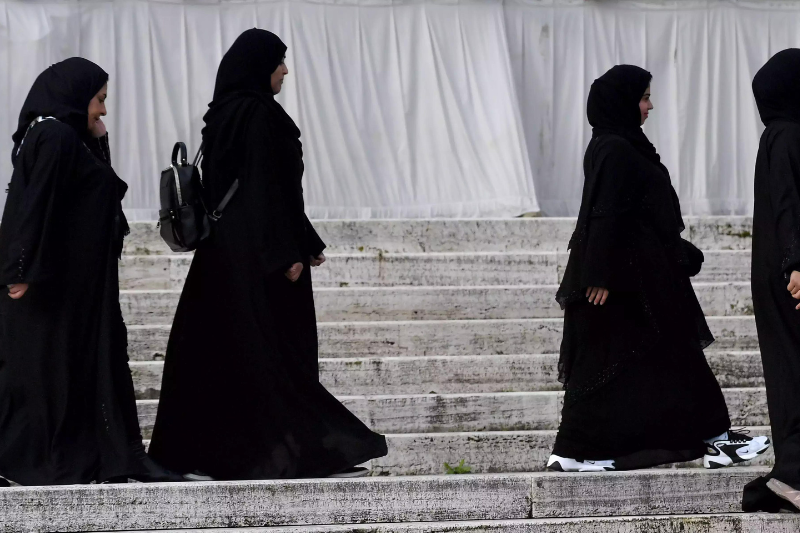
France Bans Islamic Abayas in Schools, Violates Secular Laws in Education
The French education minister Gabriel Attal is set to ban Muslim schoolgirls from wearing the Islamic abayas in classrooms, saying that “when you walk into a classroom, you shouldn’t be able to identify the pupils’ religion just by looking at them”. He believes secularism means the freedom to emancipate oneself through school.
Attal described the abaya as a religious gesture, aimed at testing the resistance of the republic toward the secular sanctuary that school must constitute. France has already banned women from wearing the Islamic headscarf (hijab). Abaya is a long, baggy garment worn as a modest dress prescribed in Islam. In 2004, France banned the wearing of signs or outfits by which students ostensibly show a religious affiliation in schools, including large crosses, Islamic headscarves and Jewish kippas.
The French education ministry had been looking at banning the abaya because it openly displays a religious affiliation. It also ban bandannas and long skirts. The right-wing applauded the ban saying they had called for the same several times. However, the left-wing opposition France Unbowed party criticized the move, describing it as “policing of clothing”.
Keep Reading
Clementine Autain condemned the decision as unconstitutional and against the founding principles of France’s secular values. She said the ban was symptomatic of the French government’s obsessive rejection of Muslims. The French Council of Muslim Faith pointed out that clothing alone is not a religious sign.
Though French politicians defend the country’s legislation as secularism, analysts say it’s part of white supremacy, xenophobia, Islamophobia and anti-Muslim sentiment. Besides schools, France has banned religious symbols in sports competitions as well.
Shireen Ahmed, a Canadian sports journalist and activist, said in 2021 that a ban for hijab means there is no sense of true belonging for Muslim women. “Football is truly a world language and it’s a vehicle for inclusion for so many people. So why on Earth would we exclude certain people?” Ahmed believes Muslim women are not all monolithic. “We’re all not the same.” She feels the most important thing is to actually include Muslim women in the discussion.




